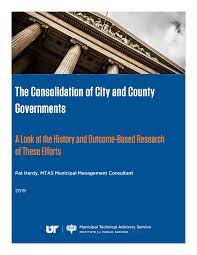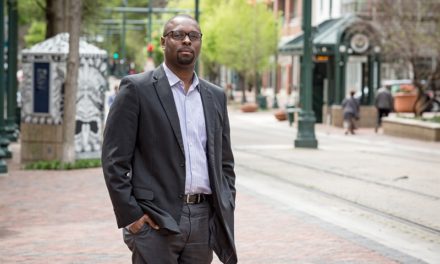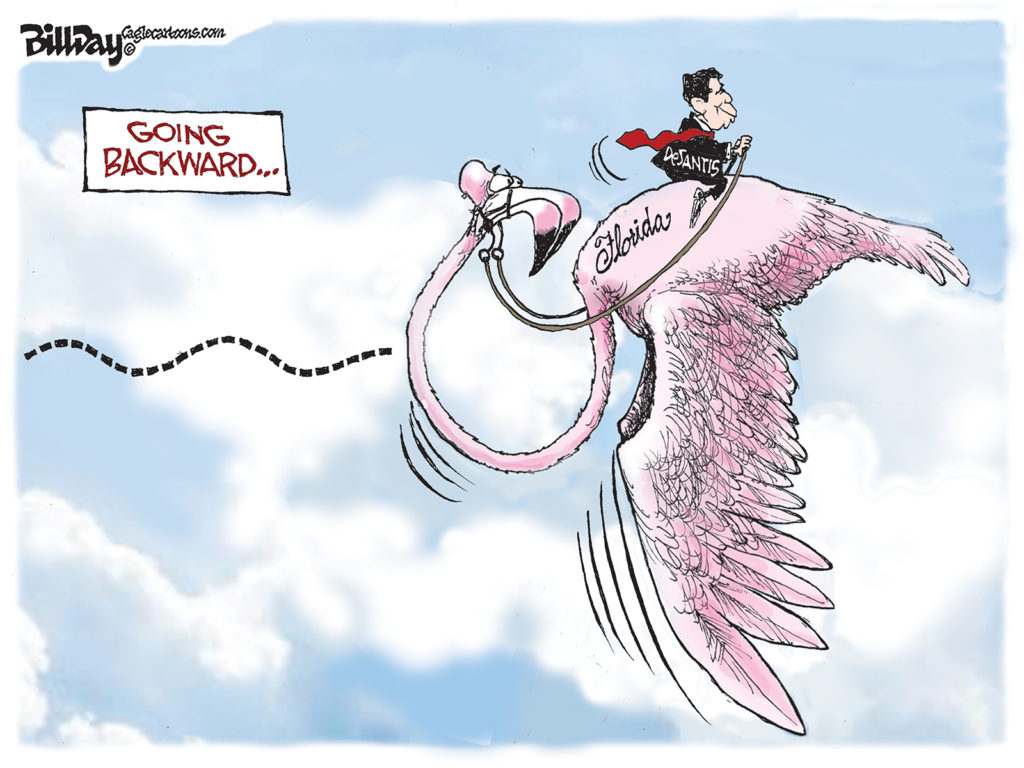
https://www.mtas.tennessee.edu/system/files/knowledgebase/original/Hardy_ConsolidationResearch_2019_final.pdf
Thumbnail: A new consolidation campaign is being shaped by a group in closed meetings when transparency and data and research-based comments are essential. It’s the same approach that has failed in the past, so how about doing something different – engaging the public in a real conversation with case studies, white papers, and studies? That way, even if consolidation fails – which is likely – there will be residual value from the process.
**
Consolidation of Memphis and Shelby County Governments is a long shot on its best days, but if it’s to improve its odds this time around, it needs now to commit itself to transparency and comments based on data and research.
After three failed attempts at passing metro government, maybe it’s time to try something different – engage the public in a real conversation on the front end rather than asking it to react to a proposed charter put forward by the members of a charter commission.
It doesn’t help that so far, the idea of eliminating the existing local governments and forming a super-government has been discussed in closed meetings by a group whose selection is unknown to the public and which began with the intention of getting a new metropolitan charter on the ballot and getting it passed.
As a result, it feels disingenuous for leading advocates to say now that all they are asking for is the chance to create a metro government charter so people can then decide if they like it or not.
Everyone has the right to advance public policy and seek its implementation, but this one is different because it will require an election in which voters inside Memphis and outside Memphis, in separate tallies, have to approve this particular idea.
Shooting Straight
It’s also different because it can’t feel like the issue is delivered from a select group without a serious commitment to the public’s input. That is especially true if the group driving this issue conceives of putting the appointment of charter commission members on City Council and County Board of Commissioners in a political show of force rather than engaging the public first.
Put simply, the discussion needs to be opened up, it doesn’t need to feel like only a select group can be involved at this point, and talking points that feel like they were crafted in a focus group should be sacrificed in favor of straight talk with the public.
It’s been said by members of the group that the public is only being asked to have a conversation about consolidation – who could be opposed to just a discussion, they say – and then the public gets to decide if it likes the proposed metro government charter.
So far, spokesmen have said they are interested in metro government because it will deliver more prosperity and economic growth for Memphis and Shelby County.
But here’s the thing: the charter will never show that.
Err On The Side of Information, Not Emotion
It will be a document that defines the nuts and bolts of a new government — its structure with divisions and departments; responsibilities of the new metro mayor and metro City Council, including terms of office and number of Council positions; inclusion of constitutional elected officials like trustee, register, and assessor whose officers are unaffected by consolidation; budgets and taxes; boards and commissions; zoning and codes; and more showing how government will work.
When the last consolidation charter was voted down 11 years ago, there was not a serious post mortem about why it failed. If there had been, one reason on the list was that it was more about talking points, public relations, and hyperbole to appeal to emotions rather than case studies and analyses to appeal to voters’ reason.
This approach runs counter to many political consultants who argue that campaigns should be emotional rather than educational; however, we’ve seen three times the results of this approach.
I would argue that a consolidation vote is different. Voters aren’t selecting one candidate over another. Instead, the campaign needs to appeal to their logic.
Another weakness in the last consolidation campaign was its rush to judgement. The emphasis was on getting it done quickly than getting it done right. It proved a fatal error.
How About Something Different?
Getting it done right would be to spend more time in a deeper communitywide conversation and fact-based, data-driven discussions about how it is to achieve the improvements it purports to accomplish. Instead, last time, the campaign emphasized political muscle and pushing through a charter through the statutory steps.
In other words, what’s needed is a discussion that respects the voters whose support they want.
None of this is to say that the charter written for the 2011 vote was not exemplary, because it was, but the accompanying campaign did not meet the same level of excellence, and most of all, the foundation for public support had not been laid to the degree that convinced voters.
Rather than spending millions of dollars on public relations campaigns and making sure a consolidation campaign is more than a distraction, draining money and attention, perhaps the best opportunity for passage is to establish an independent group of researchers, academicians, and analysts with specific knowledge in key areas.
In other words, rather than saying a consolidated government will create jobs, take the time to put together a case study that shows how that will be done.
Rather than saying that consolidation will eliminate duplication, present a study that shows where duplication actually exists (after all, City Council removed most significant duplications during the Shea Flinn-Bill Morrison era.
Rather than promising operational savings and efficiencies, develop a financial analysis that shows how that can be done.
Instead of working to write a charter that people are supposed to evaluate and assess once it’s made public, how about issuing a series of white papers and case studies that lay the groundwork, brick by brick, for a serious public discussion about improvements to government?
Studies show that consolidation usually results in higher taxes because of the expansion of services, and if the campaign contends that taxes will go down, it should issue a study that proves it.
Already, advocates see young people that have aged into voting age since 11 years ago. That is true, although this is the group with the lowest turnout percentages at the polls.
More to the point, this generation has low tolerance for lack of transparency and for people trying to sway them by their emotions. It’s yet another reason for another dramatic and different approach to consolidation, one that actually stimulates the public engagement that is often more of a talking point than a plan of action.
Pursuing A Perfect World
Here’s the thing: no county the size of Shelby County has consolidated with a city – actually, it’s not a consolidation but elimination of city government – in more than 100 years. Also, 91% of the 100 largest cities in the U.S. are not consolidated and consolidation of government has not proven to be the guaranteed trigger to more prosperity.
Finally, the overriding concern for the public here is crime, and delineating the duties of a police chief and sheriff has proven to be a ticklish political issue for every city chasing consolidation. Possibly the most powerful report of all would be one that points out how metro government would reduce crime.
Too often, consolidation – including the last one here – relies too much on endorsements and politicians and CEOs’ testimonials about how important it can be for Memphis and Shelby County. These have their place, but so far, that approach has failed three times.
In a perfect world, our community would have a full and comprehensive conversation that includes all options for improving local government, that we increased the intellectual capital brought to bear, that we had independent data for evaluating the options, and that we, as a community, had a consensus priority list on which any proposed improvement like consolidation must address, such as closing the income gap, increasing earnings, improving key economic measurements that lag peer cities, affordable housing, greater investment in children and education, and crime prevention.
Without these, we often end up in conversations structured by special interests rather than one within a context that the public feels invested in.
It’s About Leaders, Not Government Structure
Truth be told, a discussion about community priorities and where Memphis and Shelby County could become a national leader could be provide a residual contribution, whether consolidation ultimate passes or fails.
In the end, there is no secret about what makes a great city and county – leadership. All kinds of government structures work. All kinds of government structures fail. It all comes down to leaders. And places that have created a tradition of progressive leadership that extends beyond one person have the best odds of all.
The governments – and the communities – succeed because leaders identify, define, and represent higher aspirations. It means encouraging political leaders who come from beyond the usual suspects and beyond the traditional political pipeline. Other cities have proven that leadership can come from nontraditional places (the prototype is John Hickenlooper who went from brewpub owner in LoDo to become mayor of Denver and later Governor of Colorado and now U.S. Senator).
This is the real drill for consolidation advocates – making a convincing case that a new government will launch a new era of great mayors who transition the ambitions and vision of greatness for this community from term to term.
At this point, there’s little reason to be optimistic that consolidation of Memphis and Shelby County Governments will be approved at the polls. That’s why there’s little risk in trying something different this time around.
Otherwise, it is in doing something different that even if it fails, a consolidation campaign would not merely be sound and fury signifying nothing.
**
Join us at the Smart City Memphis Facebook page for daily articles, reports, and commentaries that are relevant to Memphis.






